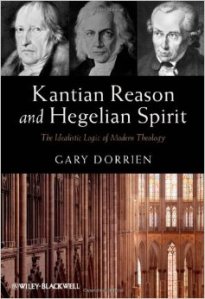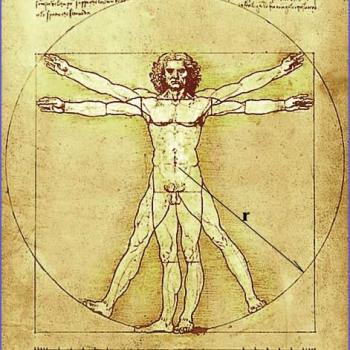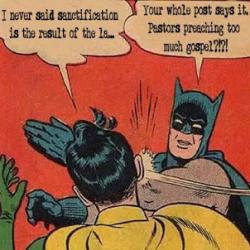
Post by Nathan Rinne
+++
Sermon follows. First, prefatory material to set the stage…
C.F.W. Walther was a giant.
He was the key founder of the Lutheran Church—Missouri Synod (LC-MS), and a man of incredible passion for God and His people. In his Pastoral Theology, which was the textbook for all the pastors trained in the Missouri Synod, he offered the following heartfelt plea:
…all true Christians are of such a nature that one can accomplish all kinds of things in them through urgent exhortation. So many preachers accomplish so little in bringing Christians to good works or bringing them away from sinful living because they do not exhort, but rather demand, command, threaten and rebuke. They do not suspect what a powerful weapon they have but do not use. Upright Christians, even if burdened with various weaknesses, do not want to reject God’s word. They want to live for Him Who died for them. They no longer want to serve sin, the world, and the devil. They want to be completely renewed according to the image of God. If they hear in the exhorting preacher the voice of their gracious God, they neither can nor want to oppose it…
Maybe that worked well for Walther, right? Like Jesus said about speaking with authority!
Walther certainly had it in spades…
Years later, however, in the mid-twentieth century, some who followed Walther in church leadership would abandon their post, leaving his fiercely-held convictions far, far behind… Even while creating the impression they were his rightful theological heirs.
These men no doubt appreciated Walther’s zeal, focus on Christ’s love, and palpable pastoral warmth—and they claimed him as their own. Nevertheless they left behind his positions on issues like Biblical inerrancy, the law of God, the Christians’ sanctification, and church fellowship.
"We do not by any means reject cooperation on the part of man after his regeneration; we rather urge it upon him lest he die again and incur the danger of being lost forever…" — Walther
— Theology Like a Child (@Infanttheology) May 3, 2019
Even though we have no reason to think that what we now recognize as Walther’s classic work, The Proper Distinction Between Law and Gospel, was not graciously and warmly received by his contemporaries, these men begin to make noise about the lack of overall appreciation for Walther’s insights – and to use it as a wedge to push their own views, particularly about the Bible and God’s law (see Edward Schroeder’s candid admissions).
Eventually they threw the Missouri Synod into utter turmoil, illustrated most clearly in the events of the 1960s and 1970s, culminating with “Seminex” and the “Battle for the Bible.”

Exactly what happened? The Germanic captivity of the Lutheran church.
In 1948 and 1949, professors from the LC-MS begin to regularly meet with the “best and brightest” German Lutheran theologians in Bad Bol, Gemany. While F.E. Mayer gave the impression that “we went, we talked, we held our own,” (Paul Strawn, here) what really happened was that they were overwhelmed with awe. They found themselves bowing before their world-savvy theological Alphas.
The Germanic heritage of Kant, Schliermacher, Hegel, von Hoffman, Ritschl, Harnack, Heidegger and Elert was just too much….
My pastor, Paul Strawn, give his take on the situation:
The more I study, the more it seems that much of this has to do simply with pride.
Academics are so for they are not only intellectuals, but wish to be seen by the world as intellectuals–especially by other intellectuals! That being so, they must acquiesce academically to the most intellectual in their field. That is, after all, the heart of the endeavor of the scientific community: Who has come up with the latest theory? How right is it? And how must I personally change my point of view to be in continuity with it? This idea holds as true for the field of theology as it does for any other field of academic endeavor.
The end result is that true Christian theology is sacrificed on the altar of academic conceit.
Folks, the ghost of Bad Bol is still with us. And, believe me, the subtle undercutting of God’s law, and the Scriptures, has not gone away.
Don’t kiss any rings.

If they can’t or won’t answer your honest questions…
if they don’t take kindly to being challenged about potential areas they have compromised…
if they get irritated when you try – deeply aware of your own sin — to gently help and guide others as best you can as you seek to live in the truth of God’s word… (remember I Tim. 4:12)
Then continue to love them and pray for them (and you). But be smart too, you know?

And now, expanding on his comment there that “we aren’t Gollum,” he is subjecting contemporary Lutheran conceptions of “the Simul” to necessary scrutiny in his piece at my own blog, “The Disassociated Christian”.
Check these pieces out — if you think you are up for the rollicking ride He provides…
And now, as promised above, it’s my turn…
The following was written as a part of a homiletics class I recently took. Even as I wrote it, I pictured it as a message most appropriate not for the typical Christian congregation, but for a conference of pastors, theologically-inclined laypersons, or even a gathering of professors. I hope it challenges and edifies you.
+++
“….the Lord set his affection on your ancestors and loved them, and he chose you, their descendants, above all the nations—as it is today. 16 Circumcise your hearts, therefore, and do not be stiff-necked any longer….” — Deuteronomy 10:15
(Eighteenth S. after Trinity. Texts: Deut. 10:12–21 Psalm 34:8–22 1 Cor. 1:(1–3) 4–9 Matt. 22:34–46)
…
In the Name of the Father and of the Son, and of the Holy Spirit. Amen.
Brethren, as Paul says “I always thank my God for you because of his grace given you in Christ Jesus. 5 For in him you have been enriched in every way—with all kinds of speech and with all knowledge…”
And in our Old Testament text for this day from the book of Deuteronomy, we see a similar word about God’s gracious choice of His people. And we also see another consistency: He has always called on us to be dependent on Him – to submit to Him and obey Him because He has our good in mind:
And now, Israel, what does the Lord your God ask of you but to fear the Lord your God, to walk in obedience to him, to love him, to serve the Lord your God with all your heart and with all your soul, 13 and to observe the Lord’s commands and decrees that I am giving you today for your own good?
And as Martin Luther put it regarding this passage, it is only “the power of the first commandment,” which is faith, that “may rule and govern all commandments and works”. This certainly isn’t just some external thing we do… outward behaviors…but is rooted in this: for “I am the Lord your God who has delivered you!”
So “Circumsise your hearts!”
Faith begets love which begets this obedience. And today, God hasn’t now–and He didn’t then–give anyone laws which are bad.
Then, as now, following those commandments perfectly, in true faith, would have been the best thing for us and everyone else. Really, not just for the good of God’s people but for the good of all the nations… With the finest law in the land – nay the earth – at that time, Israel was to be a showcase for the nations. Here, in our text, Luther even sees in God’s words “delightful promises of God”: God is not partial! God take no bribe! He executes judgement for the fatherless, the widow! He gives food and clothing to the sojourner!
Brethren in the Lord, not much has changed. Our great God—who chose us—still reigns over all heavens, all other gods, all nations.
He is still the one who regards the least of these, and those not much in this world – you and me. And He still calls us from a life of idolatry to one of complete loyalty to Himself.
So come to the feast and circumcise your hearts!
But wait… wait…. Of course things are a little different now, you might say. With Jesus, parts of God’s law were abrogated after all–and He Himself is the end of the law! We have the insights of Dr. Luther and great men like C.F.W. Walther, who have given us even clearer guidance on what it means to really understand God’s Law and Gospel!
We know that God’s law condemns us and the Gospel frees us! We know that while the law is a force which keeps us in bondage, the Spirit, through the Word of grace, gives us life! We know that even if God’s law might be called sweet, we, being and remaining sinners can never see it that way, and should never fool ourselves into thinking we can see it that way: “there is no sweetness in the law [for us!]” we might dourly think.
Brethen, may it never be!
Jesus is not the end of the law per se, but He is the end of the law for righteousness. Now as then, this is not about our worthiness — let Him who boasts boast in the Lord! Any who seeks Divine Things but find themselves zealous in the wrong way, seeking to be justified by God’s law or even their own Law or Measure, must, if they really will be saved, find their end in Him – the end of their old and empty way of life which is passing away….
They must hear that word which produces faith, that word which gives us the only One who truly lived the life of love God intended, the only One who truly fulfilled the law.
For what do our other texts for the day show us?
In the Gospel lesson, for example, Jesus through His Holy Spirit, not only reveals Himself as the One who teaches with authority the goal, or point of all the commandments – citing His summary of them in loving God and neighbor–but, through His piercing question to the Pharisees, reveals Himself as the Divine Son of David, who, of course, will perfectly fulfill that Law of God.
So in this passage from the Gospel, the Holy Spirit is convicting the world of sin and exalting Christ, David’s Son whom he calls Lord, the One who fulfilled all the commandments of God on our behalf and for our sake by living the life of love God desires. By His tender mercies, He now calls us to fulfill his law as well.
We are commanded to believe in the Lord Jesus, the One who is vindicated by God and proves the world and its worldliness, with its own laws and its own interpretations of His laws, to be wrong. How? Because as Jesus says He – not you, not me, not them — is going to the Father… [ascending to the Father…] where you can see Him no longer….
The Psalmist tells us too, no doubt thinking about the “great and awesome wonders” of God mentioned in the Deuteronomy text, to “Taste and see that the Lord is good and take refuge in Him!”
And really, how can we not? To whom, after all, shall we go? For we who have been exposed to Him cannot help but see in this Psalm a clear picture of the Lord Jesus, who is indeed the “righteous person [who has] many troubles,” whom the Lord nevertheless “delivers….from them all…” not only “protecting his bones from being broken” but much, much more.
Resurrection. Victory. Ascension.
Listen to Him!
So, with this said, let’s revisit some of the statements I made earlier to which I replied “may it never be!”
I said: “We have the insights of Dr. Luther and great men like C.F.W. Walther, who have given us even clearer guidance on what it means to really understand God’s Law and Gospel.”
Luther indeed said the distinction between Law and Gospel was an exceptionally glorious light and that without it Scripture remained a closed book. This said, none of this means that the Law and Gospel regulate the Scriptures, but the opposite is true – we learn about, we see, law and gospel from the Scriptures. And Luther, of course, was not the first to see this great light—even if he perhaps saw it most vividly—and neither were those claiming His spiritual lineage the first to corrupt it.
Look at our epistle reading, for example. Paul comforts the Corinthians in it, and us today as well, that the Lord desires for us to be kept blameless on the last day. He will provide the means for just this!
For they, as the Apostle says, are called — together with all those everywhere who call on the name of our Lord Jesus Christ — to be his holy people. As He goes on to say in this letter, they, through the power of God’s Spirit, do not need to be like the Israelites who fell to idolatry, to grumbling, and to sexual immorality in the desert. No. God instructs them now and promises to provide a way out – this “[Holy] Spirit who is from God, that we might understand the things freely given by God” (I Cor. 2:12)
The whole of the book of I Corinthians, introduced to us by Paul in our other text, is an urging, on the basis of who they are in Christ, to not be stubborn but to “circumcise [their] hearts,” and renew their faith and trust in Him, the crucified giver of the Holy Spirit.
As Luther puts it: “[Christ]….wants to indicate that because of all the temptations and hindrances we face, nothing is more necessary in Christendom than continued and unceasing prayer that God would give us His grace and Spirit” (on Matt. 7:11)
What about this one I mentioned?: “We know that God’s law condemns us and the Gospel frees us! We know that while the law is a force which keeps us in bondage, the Spirit, through the Word of grace, gives us life!”
Do not be stiff-necked brethren. Remember, the Lord set his affection on your spiritual ancestors and loved them, blessing them with the true teaching of the Lord Jesus and His apostles – and he chose you, their spiritual descendants, above all the nations of this world—as it is today. You are God’s holy nation, His holy people, and you know that from the beginning, God meant all His commands for our good. Even in Eden, God did not mean for His commandment to be some eternal principal or force which would always coerce us and keep us in bondage. Be the law Yin to the Gospel Yang.
No – our ancestors failed as we fail to fear, love, and trust in God above all things! To grow in the “very goodness” of creation – the truly spiritual life that God had blessed us with. If we dare to call God’s law a “negative force” it is because we have become negative in our sins, in sin, corrupting ourselves, corrupting our nature, and with it our views of God’s law, which is always fulfilled in love.
What about that last phrase I mentioned? “We know that even if God’s law might be called sweet, we, being and remaining sinners can never see it that way, and should never fool ourselves into thinking we can see it that way: “there is no sweetness in the law [for us!]” we might dourly think”
This, my friends, is a lie from the Accuser who uses the law to our condemnation and not for our good. It is true, of course, insofar as we take breath in this earthly life we will not be free from sin, and therefore the law cannot but haunt and accuse us. We will do nothing from a truly pure heart like we ought. We will learn nothing of the goodness of His law without tainting it with our own sinful perceptions, desires, motivations. We will fulfill no action with the heart of Christ for our neighbor who also embodies Christ for us.
Nevertheless, there is sweetness in the law and we new creatures know it! For in Christ, the Law’s guilt and accusation are taken away! As Luther notes, when we know Christ and bear His easy yoke “everything within is sweet and pleasant…[we willingly do and suffer everything…” For we are redeemed in the blood of the Lamb and so this is the truth.
We can see that God’s law is fulfilled in love, and offers a picture not only of what we are not, but of what we should be, and, through faith, will be!
We can see that the fear, love, and trust in God above all things – and the love of neighbor as one’s self (especially with the family of God!) – should be at the center of everything, not bringing worldly health and wealth, but nevertheless beginning to bring real harmony and shalom, peace, to this world.
Back to our Psalm for the day:
Come, my children, listen to me;
I will teach you the fear of the Lord….
The Lord will rescue his servants;
no one who takes refuge in him will be condemned.
Come Lord Jesus, our only Refuge and our only Strength.
AMEN
















